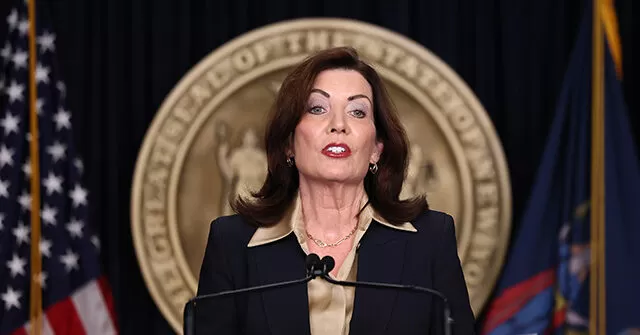The New York State Education Department (NYSED) has made a powerful statement by refusing to eliminate diversity, equity, and inclusion (DEI) practices, contradicting orders from the Trump administration. This decision by the NYSED marks a significant victory for those fighting for equal and inclusive education for all students in New York State.
In recent years, the issue of DEI has become a hot topic in the education sector. This approach focuses on creating a learning environment that is diverse, fair and inclusive, providing students with equal opportunities regardless of their race, gender, ethnicity, religion, or socio-economic background. However, the Trump administration issued an executive order to abolish DEI practices in all federal agencies, including educational institutions, claiming that they promote “divisiveness and resentment.”
Despite this backlash, the NYSED has stood firm in its commitment to promote DEI practices. In a statement released by the department, they affirmed that “the pursuit of diversity, equity, and inclusion is integral to create a fair and just society, and it is our moral and ethical responsibility to uphold these values.” This bold stance has garnered widespread support from various stakeholders in the education sector, including parents, teachers, and students.
The decision to reject the Trump administration’s order sends a powerful message that NYSED acknowledges the importance of DEI practices in cultivating a positive learning environment. By embracing diversity, equity, and inclusion, the department is promoting a society where every student is valued and has equal opportunities to achieve their full potential.
Furthermore, the NYSED’s refusal to eliminate DEI practices sets a precedent for other educational institutions across the country. It demonstrates that taking a stand for what is right and just, even in the face of political pressure, is essential in creating a society that values diversity and promotes equality.
The backlash against DEI practices is deeply concerning, as it disregards the experiences of marginalized students and perpetuates systemic inequalities. By rejecting these harmful ideologies, the NYSED is promoting a more inclusive society, where every student is respected and valued for who they are.
Moreover, the decision of the NYSED is not just a symbolic gesture. The department has also taken concrete steps to implement DEI practices in New York State schools. This includes updating curriculum to include diverse perspectives, addressing implicit bias in teacher training, and providing resources to support students from underrepresented communities.
One of the keys to a successful educational system is ensuring that every student feels accepted, valued, and supported. DEI practices play an essential role in creating such an environment where no student is left behind. By embracing these principles, the NYSED is not only fulfilling its ethical responsibility but also promoting academic success for all students.
In conclusion, the New York State Education Department’s refusal to eliminate DEI practices is a bold and admirable decision. It showcases the department’s commitment to promoting a fair and just society, where every student has an equal opportunity to succeed. This action serves as a beacon of hope, sending a powerful message that diversity, equity, and inclusion are vital values that must be upheld in education. Let us hope that other educational institutions follow in the footsteps of NYSED in creating an inclusive and equitable education system for all.




![Complete BritRail Pass Guide [Types, How to Use It, Pros + Cons]](https://inside-news.uk/wp-content/uploads/2025/06/00221EB4-BCA2-4DBB-6CD4-83DBC37D71FA-120x86.webp)











